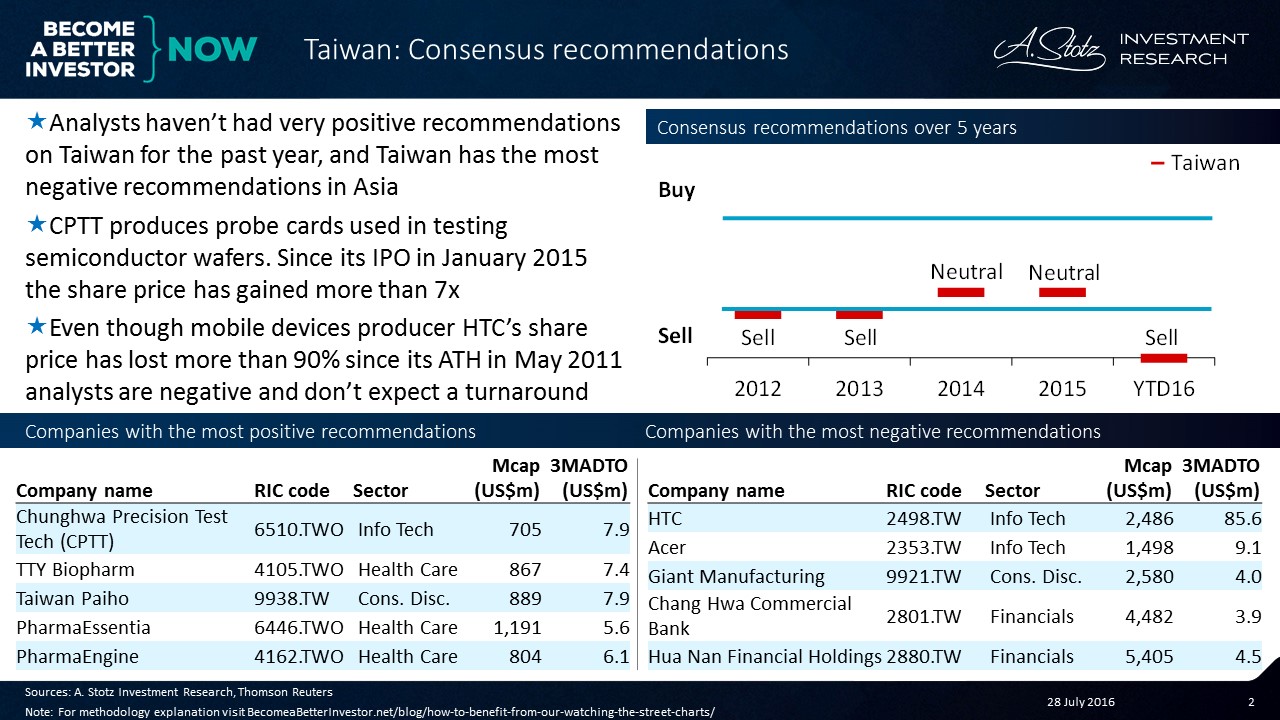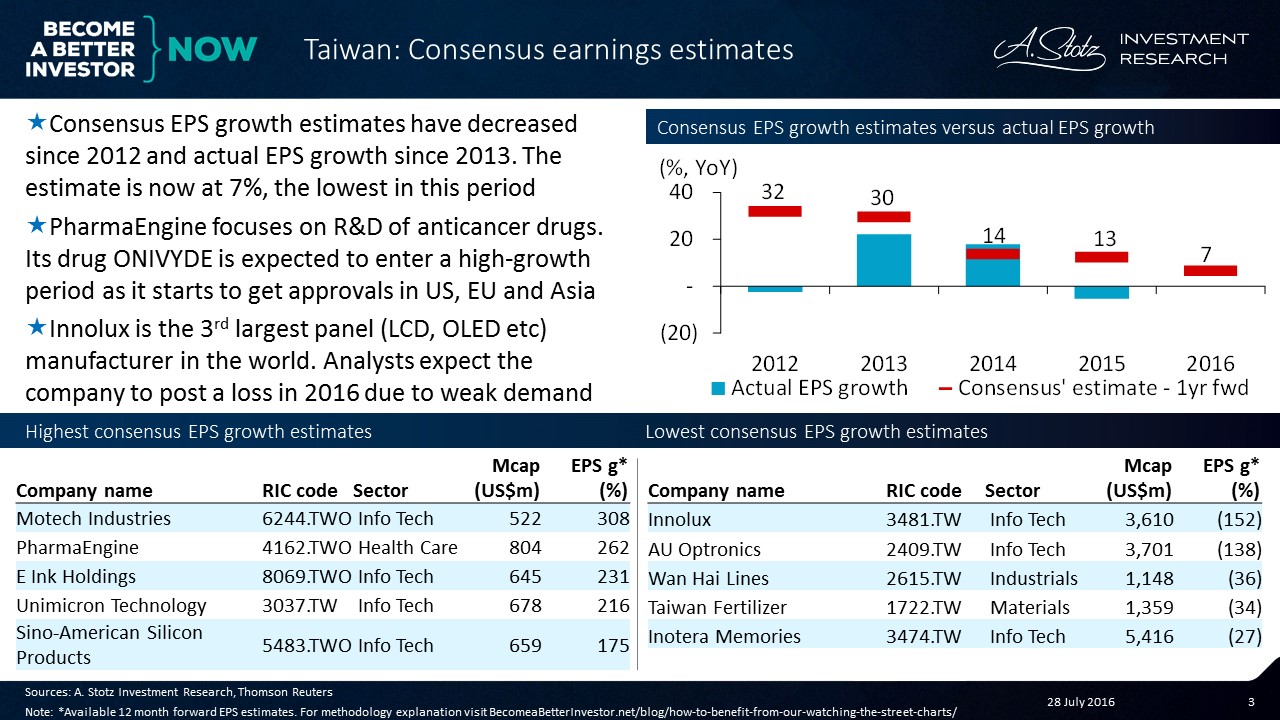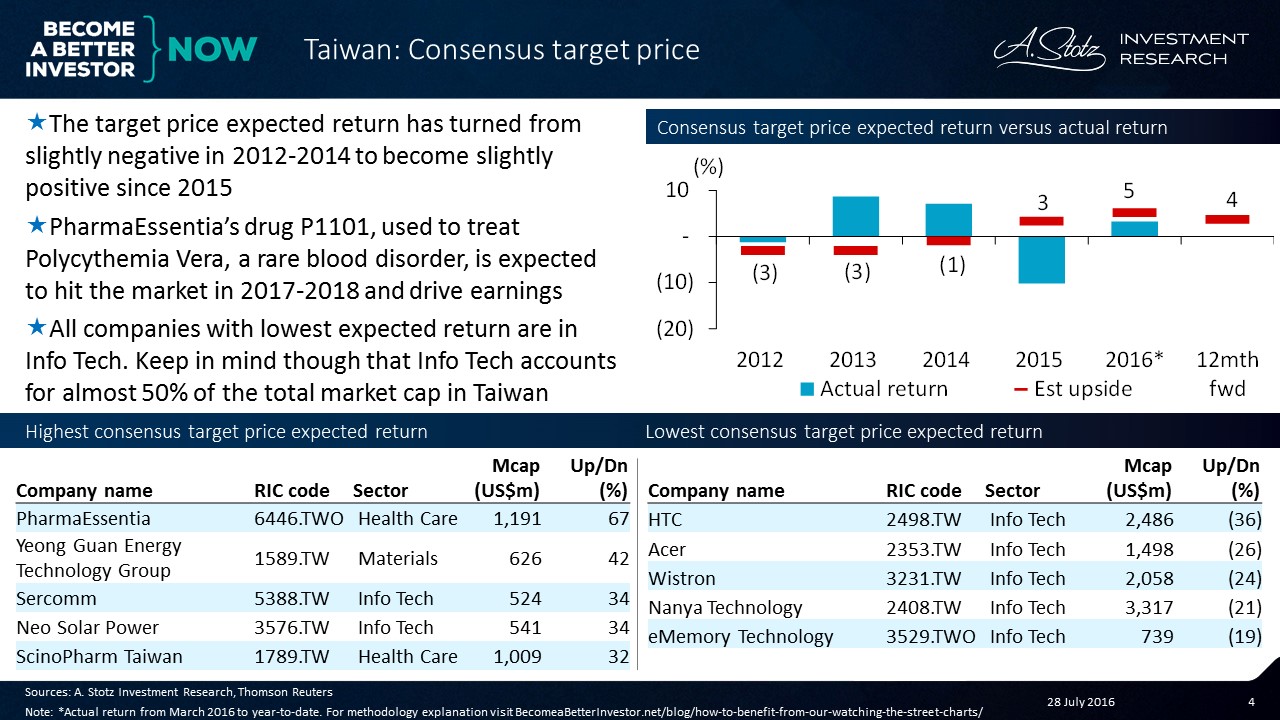Recommendations on Taiwan Don’t Look Very Promising
Watch the video with Andrew Stotz or read Watching the Street: Taiwan below.
Consensus Recommendations: Taiwan
Starting with the consensus recommendations of analysts covering Taiwanese companies, it sure isn’t looking very promising. In fact, we can see that analysts haven’t had positive recommendations on Taiwan for the past year.
Learn more: How to Benefit from Our Watching the Street Charts
Taiwan actually has the most negative recommendations in Asia. It’s an extreme relative to all the other countries in Asia.
The company Chunghwa Precision Test Tech produces probe cards used in testing semiconductor wafers; and since its IPO in January 2015, the share price has gained more than 7 fold. This is one of the few companies with a positive recommendation.
On the negative side, mobile-device producer HTC’s share price has lost more than 90% since its ATH in May of 2011. Analysts remain negative, and they don’t expect a turnaround any time soon. Acer is another company with a negative recommendation.
Consensus Earnings Estimates: Taiwan
If we move from consensus recommendations to consensus earnings estimates, we can see that consensus EPS growth estimates and actual EPS growth have decreased since 2012 and 2013, respectively.
The estimate is now at 7%, the lowest in this period, so analysts are not expecting much out of Taiwan.
But, of course, that could be an interesting turning point. Of the companies with the highest consensus EPS growth estimates, PharmaEngine focuses on R&D for anti-cancer drugs. One of its drugs, ONIVYDE, is expected to enter a high growth period once it receives government approvals in the US, EU and Asia.
Among the companies with the lowest consensus EPS growth estimates, Innolux is the third largest panel (LCD or OLED) manufacturer in the world. Analysts expect the company to post a loss in 2016 due to weak demand.
Consensus Target Prices: Taiwan
Analysts have never been very positive about their target price estimates here. The target price expected return has moved from slightly negative during the 2012-2014 period to slightly positive since 2015. Yet analysts are still only expecting a 4% return.
PharmaEssentia, one of the companies with the highest consensus upside, owns the drug P1101. This drug is used to treat Polycythemia Vera, a rare blood disorder. It is expected to hit the market in 2017 and 2018 and drive earnings.
Interestingly, all the companies with the lowest consensus expected returns are in the Info Tech space. Keep in mind, though, that Info Tech accounts for almost 50% of the total market cap in Taiwan, and the sector is doing pretty horrifically right now.
Do YOU use any kind of analyst estimate when considering an investment?
Let us know in a comment below.
DISCLAIMER: This content is for information purposes only. It is not intended to be investment advice. Readers should not consider statements made by the author(s) as formal recommendations and should consult their financial advisor before making any investment decisions. While the information provided is believed to be accurate, it may include errors or inaccuracies. The author(s) cannot be held liable for any actions taken as a result of reading this article.



